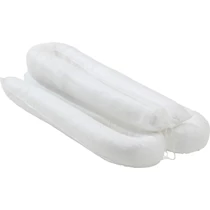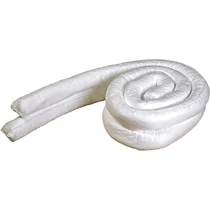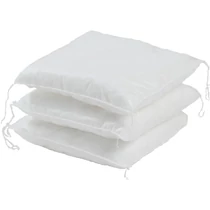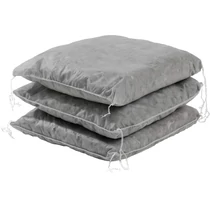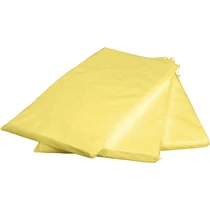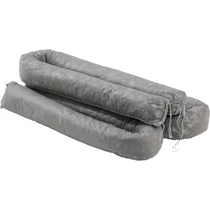Specification
| Art No. | SH-CP-3030 |
| Content | Polypropylene (Pulp) |
| Weight | 0.25 kg/pcs, 6,85 kg/box |
| Size | 30 x 30 cm |
| Sorption capacity | 36 litres/box |
| Standard package | 24 pcs/package (carton box), 20 boxes/pallet |
| Pallet size | 100 cm x 120 cm x 200 cm, weight 152 kg |
Description
Typical applications are
- Used as a barrier preventing and limiting oil and chemical (acids and alkalines) spills
- Ideal for placing around leaking machines in machine rooms
- Ideal for placing around printing machinery etc.
- Its biggest advantage: it needs less frequent replacement
- High absorption capacity
Details
Chemical absorbent pillows are filled with polypropylene meltblown pulp for excellent absorbency and fluid retention properties. The stitched spunbond outer provides extra durability. They are used to absorb localized leaks of dangerous liquids around machines, barrels and others. Sorption pulp is a very effective alternative to bulk inorganic sorbents. Delivered in boxes.
Chemical (hydrophilic) sorbents are truly versatile in their use because they absorb all types of non-aggressive liquids, such as oil substances, organic substances, and aqueous solutions of acids and alkalis. Chemical sorbents are not recommended for oil spillage on water. Their use is especially suitable where there are permanent small leaks of various fluids, emulsions, generally to prevent any leaks. Chemical sorbents are supplied in yellow.
Chemical pillows are fast and highly absorbent and keep good tensile properties even when saturated. Ssuitable for applications in machinery maintenance, garage and vehicle maintenance, traffic around machinery, lining of work benches and more.
Store the sorbents only in dry rooms and, if possible, without long-term direct sunlight. In order to maintain the sorption capacity, it is especially necessary to store the products so that they are subjected to the lowest possible load. Used absorbents can be properly incinerated to reduce disposal cost.
Waste handling
Handle in accordance with local and national laws and directives. Always contact the local authorities for advice and recommended actions.



